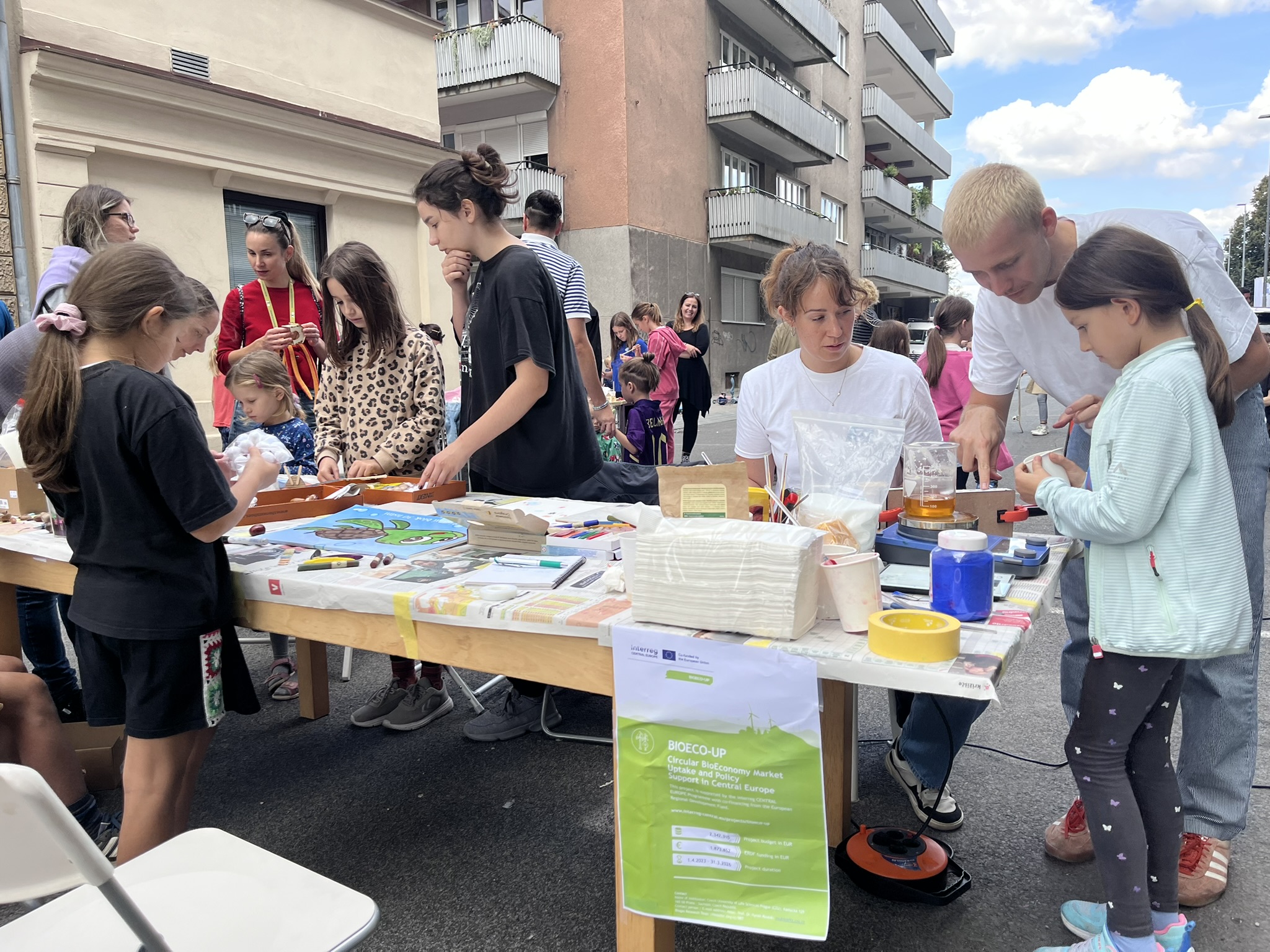The subject of our third test was oil pastels produced by the Rog Centre in Slovenia. Together we organised a workshop for children and parents at the street festival in Ljubljana. Children and parents took part in the production and discussed natural pigments, beeswax and the use of upcycled cooking oil. They also tested the oil pastels for drawing and writing on different surfaces and compared them with other conventional and ecological crayons. The participants provided valuable feedback on the practical and sensory properties of the product. The aim of the tests was to refine the composition and packaging of the oil pastels while assessing market acceptance. The second event at the Rog Centre focused on a closed focus group involving children, parents, teachers, artists and designers. A more in-depth analysis of the product’s firmness, oiliness and other physical aspects of the product were conducted. In a group discussion, we brainstormed about colour tones and shapes, packaging design and possibilities for upcycling and other environmentally friendly product features. Various ideas for home production and marketing were explored. The overall response from users was positive. The oil pastels were seen as a sustainable and gift-worthy product that reflects the creative ethos of the Rog Centre.
The feedback gathered from these Living Lab activities has provided valuable insight into user preferences, market acceptance and potential improvements, helping to drive further innovation of these bio-based products.
